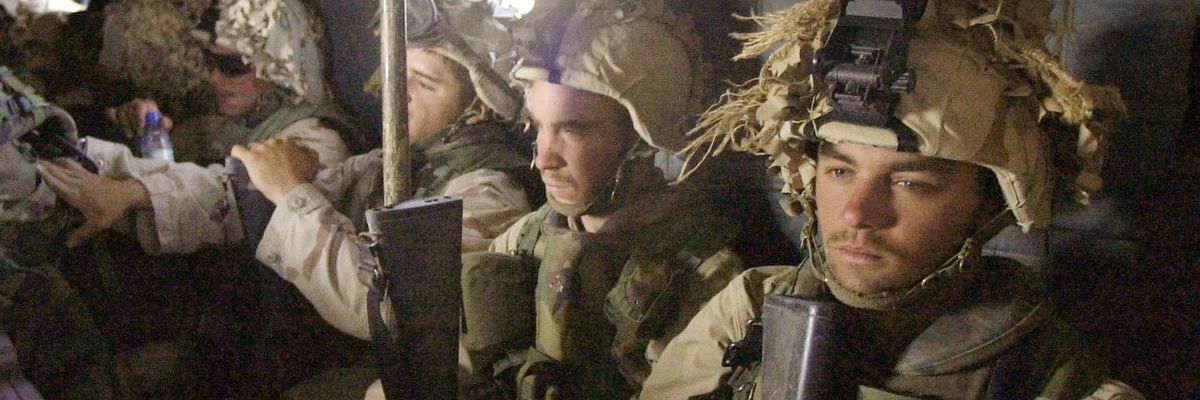Washington squandered multiple opportunities for a responsible departure at various junctures throughout the war in Afghanistan. But President Trump’s recent announcement via Twitter to bring the remaining troops home by Christmas is detached from logistical realities, appears motivated by catchy headlines, and does little to actually bring the troops home.
The war in Afghanistan began with the limited goal of destroying al-Qaeda’s operational capabilities and safehaven in Afghanistan. On October 6, 2001, Secretary of State Powell sent a warning to Mullah Omar that if the Taliban did not “hand over all al-Qaeda leaders,” then “every pillar of the Taliban regime will be destroyed.” The U.S. military quickly routed the Taliban and al-Qaeda from Afghanistan’s major cities across the border into Pakistan. Others remained in Afghanistan’s rural areas and without a clear plan for transitional justice and reconciliation, the embers of the Taliban movement began to rekindle even with their leadership decapitated. The direct foreign backing came later which led to a full-scale insurgency and proxy conflict.
Over nearly two decades, Washington’s focus on operations in Afghanistan waxed and waned as the conflict transcended its original counterterrorism objective and became a failed exercise in counterinsurgency and nation-building. A U.S. counterinsurgency strategy that insisted against its own experience that the Taliban could be defeated militarily combined with regional spoilers and caused openings for peace talks to slip through the cracks. Now, for the first time, the Taliban, Afghan government, regional backers and potential spoilers, and the international community are aligned in their commitment to achieving a political settlement.
This is the wrong time for bold but logistically unfeasible withdrawal announcements that serve no purpose other than to influence electoral politics in the United States. Such antics are not only unfair to servicemembers and their families, but they also place undue stress on crucial intra-Afghan talks without actually bringing Americans home. The Taliban have already issued a statement endorsing President Trump’s announcement and this kind of ad hoc diplomacy is detrimental to fragile peace talks that only just began.
It is important that both the Taliban and Afghan government negotiating teams appreciate the exigency of the circumstances and move toward a political settlement. U.S. security guarantees should not be misused to allow talks to continue indefinitely. The reality is that U.S. troops are not an indigenous part of Afghanistan's power dynamics and it is the responsibility of Afghans to formulate a political settlement that is sustainable without an outside military presence. This requires both sides to accept the domestic conditions that exist rather than purely aspirational ones. But a rushed agreement that produces an unstable outcome will also prove futile.
For this reason, national security adviser Robert O'Brien’s earlier announcement that U.S troop levels in Afghanistan will go down to 2,500 by early 2021 may push talks forward even if it reduces some leverage for the Afghan negotiating team. U.S. air assets which most shape the battlespace and the Taliban fighters’ own fears will likely remain. It is highly improbable that a reduction in U.S. troops to 2,500 will embolden the Taliban to repeat the kind of assaults on Afghan cities that were seen in 2015-16, which led to high Taliban casualties even as they failed to hold urban areas.
Both Kabul and the Taliban have an incentive to continue working towards a settlement and take advantage of an unprecedented coalescence of regional actors around a commitment to a political settlement. After all, it is widely believed that Mullah Baradar’s arrest by Pakistan’s ISI was more motivated by his desire to engage with Hamid Karzai than U.S. counterterrorism demands.
Critics of any kind of U.S. drawdown insist that the presence of significant U.S. troops is needed to control violence in Afghanistan and provide the Afghan negotiating team leverage against the Taliban. The Taliban view a continuation of fighting during the intra-Afghan talks as their primary leverage even if it embroils the country in violence and misery. However, this does not mean that the Taliban are disingenuously participating in talks as a way to run down the clock on a U.S. withdrawal. First, the Taliban’s leadership have enjoyed a taste of international legitimacy from the United States, Russia, China, and even the European Union.
Second, the Taliban witnessed the downfall of the Islamic State after a U.S. withdrawal from an even more unpopular war. The Taliban understand that the United States can return. Third, the Taliban’s own leadership are more sophisticated today than at the beginning of the conflict due in no small part to lessons learned from navigating the polycentric and divisive internal politics of their own organization. Whether this internal experience with consultative governance models translates into successful intra-Afghan talks or power sharing in an Islamic Republic remains to be seen.
It is also unlikely that either Kabul or the Taliban calculate that a U.S. withdrawal is strictly conditions-based regardless of official U.S. statements. Both Afghan negotiating teams likely understand what some in Washington have failed to accept — the continuation of U.S. involvement in Afghanistan is numbered. Outwaiting what is perceived as an inevitable U.S. departure is certainly an option for the Taliban. However, a far better option is to secure a political settlement that is respected internally and internationally and avoid a return to the 1990s era of civil war. It is equally unwise for the Afghan government to drag its feet in the hopes that a prospective Biden administration will continue the status quo.
What is required at this juncture from Washington is support for intra-Afghan talks and a realistic internal framework for a complete exit from our nation’s longest war that is measured in months--not years. Using our warfighters for a political stunt must be rejected, but so too should calls to rebrand the status quo into an indefinite counterterrorism mission or nation-building exercise.
















